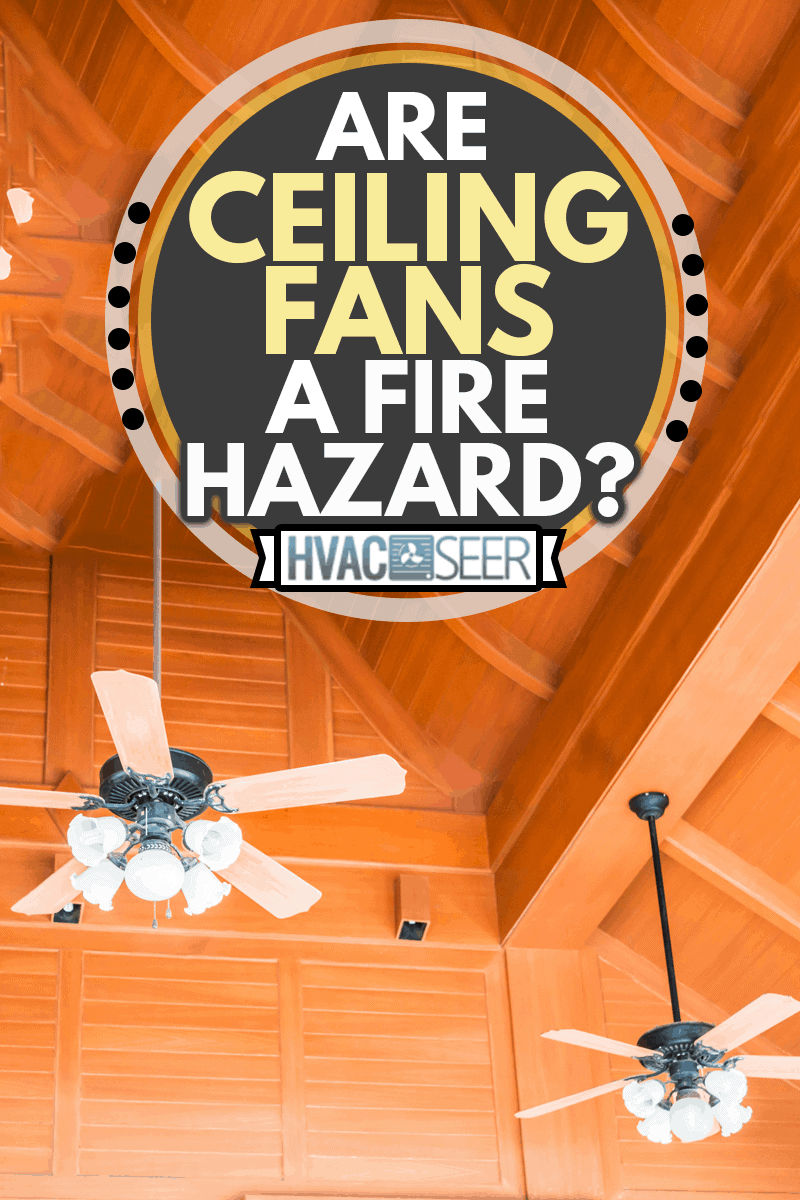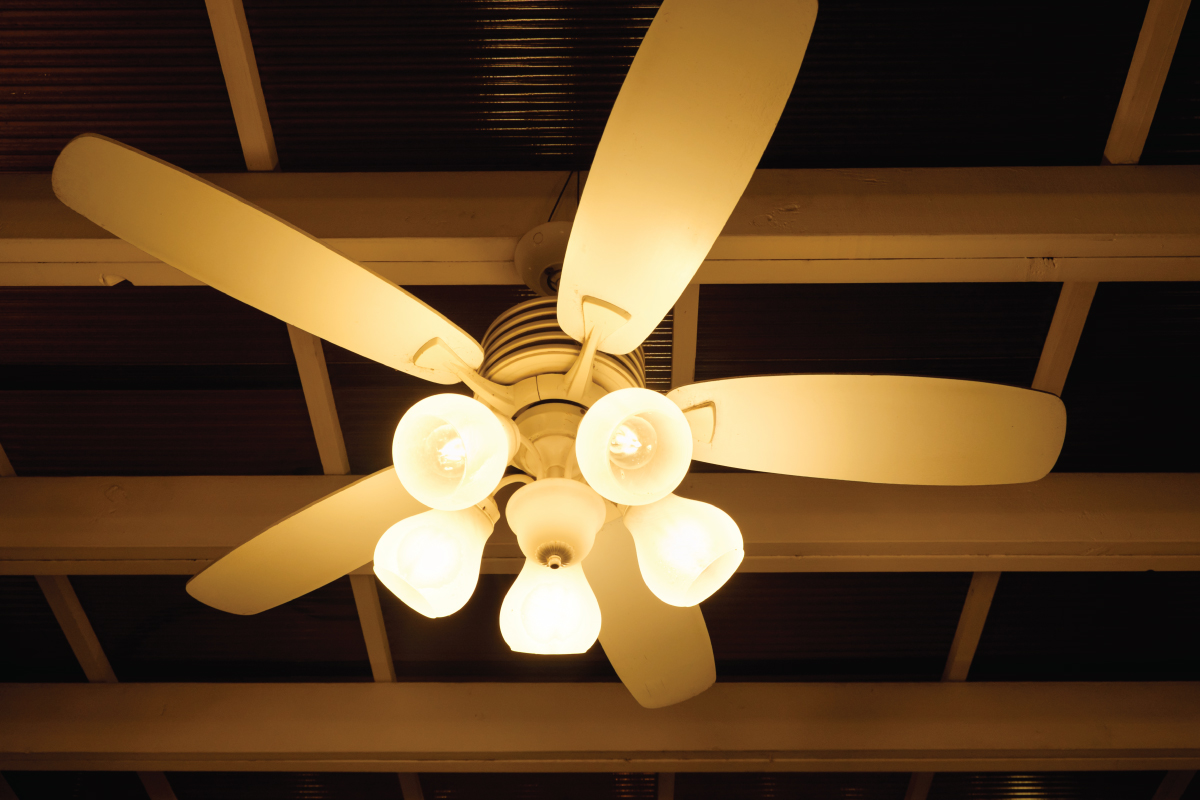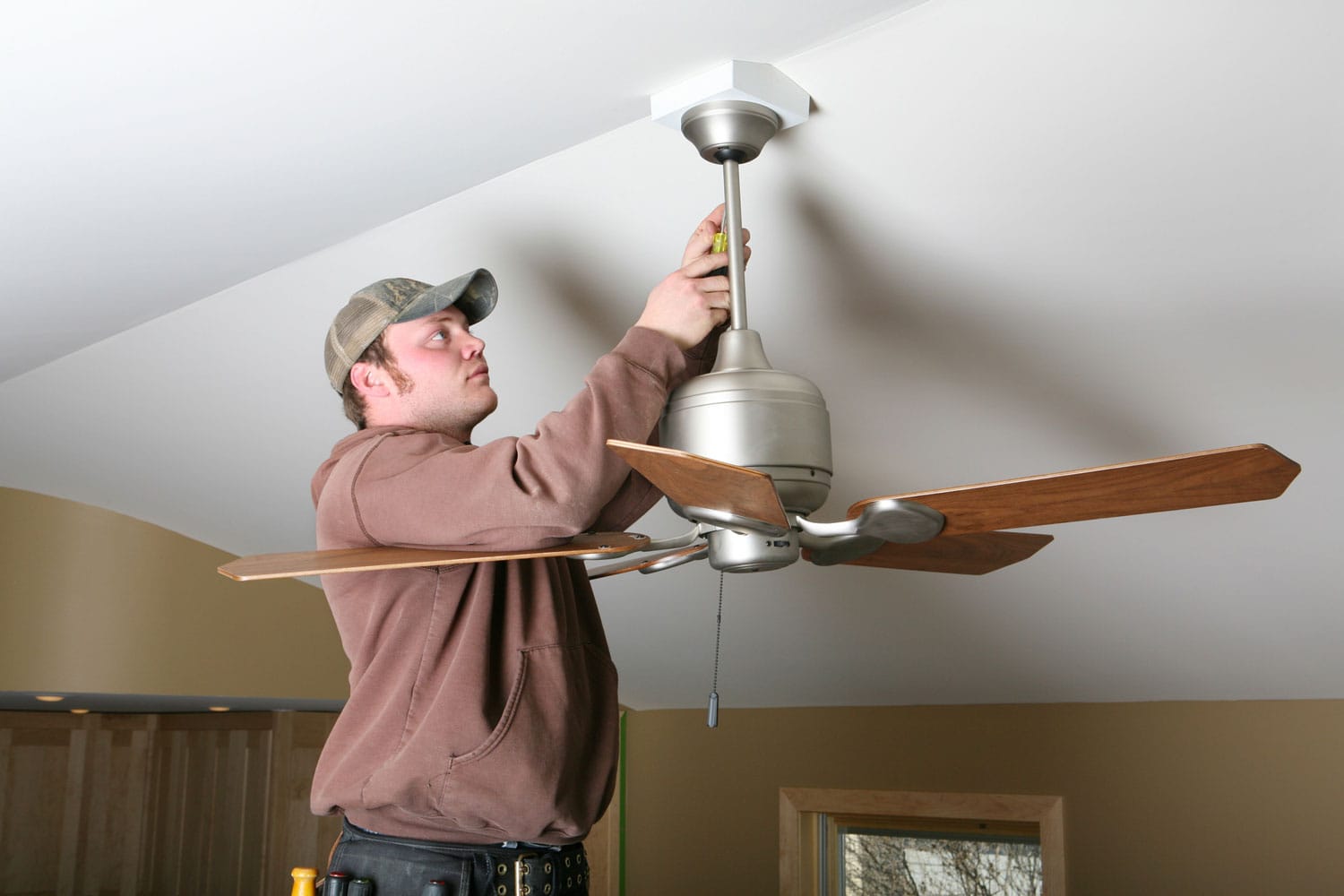The safety of your family and yourself is always at the forefront of your mind. Your home should be the safest place of all for loved ones. When researching low-cost ways to cool your home, a ceiling fan has likely been at the top of your list. Ceiling fans save on energy and can add a touch of elegance to your room. But are ceiling fans completely safe? Are they a fire hazard? We've done the searching for you and found some excellent information.
A ceiling fan is still an electrical appliance; therefore, the potential is always there for a fire if wired incorrectly. However, the chances of a ceiling fan sparking fire are extremely rare. The fire hazard can be avoided by routine maintenance and inspection, almost ruling out the barest potential of fire.
Now you know the chances of a ceiling fan catching fire are rare. Read on to find the circumstances under which such a thing could happen. We'll answer some other questions you might have as well. Continue scrolling to learn more.

What are the Chances a Ceiling Fan Could Catch Fire?
The chances of a ceiling fan sparking fire are quite slim. Ceiling fans are reported to cause anywhere from 3% to 6% of household fires and are, at times, easy scapegoats to explain a house fire. Since ceiling fans are located in the ceiling, they are exposed to more direct flames and have the chance of becoming extremely charred. The absolute damage makes them an easy explanation of why the fire started.
Additionally, when a fire occurs below a fan, the flames find their way through the hole in the drywall where the fan's electrical is located. This causes the ceiling joists to be charred, leading the inspectors to determine the fan overheated when this isn't necessarily the case. Even with this potential error in diagnosing a house fire, the number of ceiling fans blamed for house fires is still low.

What Might Cause a Ceiling Fan Fire?
The most obvious reason a ceiling fan might catch fire is the electrical wiring. Setting up the wiring for a ceiling fan can be a tricky task, especially if there isn't existing wiring in place for your fan. Often, ceiling fans have light fixtures as well, adding another layer of complexity to their installation. If this is done improperly, the wiring could spark and catch fire.
Add improper wiring to improper installation, and you have more than just fire to worry about. Imagine spinning ceiling fan blades coming loose! Does your ceiling fan wobble? Read our post about what can be done.
Another contributing reason to fire would be a build-up of dust or dirt. If the detritus is substantial enough, it could block the vents of your ceiling fan, causing it to overheat and catch on fire. Remember, your ceiling fan is attached to the ceiling, which is sheetrock with wooden joists above it. Heat can make all these materials catch fire.
How to Prevent Ceiling Fan Fires
The number one way to prevent ceiling fan fires is to ensure proper installation. The best way to ensure proper installation is to have a professional electrical contractor do the wiring for the fan and the installation. This is not the type of job for a novice do-it-yourself weekend warrior. Unless you have the proper electrical training, best to leave this job to the professionals!
Feel free to choose whatever ceiling fan you wish. Leaving the hard parts to a contractor means all you have to worry about is the look of your ceiling fan.
View this ceiling fan on Amazon.
After installation, ensuring the ceiling fan blades and vents are properly cleaned also prevents fires. We're sure you've noticed how dust can build-up on fan blades. This build-up also occurs over the ventilation slits on your fan. Check these routinely for debris and ensure their breathability. A microfiber duster with an extension pole is the perfect tool to keep your ceiling fans clean.
Do ceiling fans need to be oiled as part of their maintenance? Read what we have to say about that.
How Common Are Electrical Fires?
According to the National Fire Prevention Association, electrical fires are the second leading cause of home fires next to unattended equipment, equalling about 13% of house fires.
Improperly installed electrical appliances and wiring can cause arcing and sparking. Most of these issues occur in the winter when people are more likely to use appliances involving a heat source. Electricity and fire are close relations and should be treated with a certain amount of respect. Ensure all electrical outlets and wired appliances are treated with that same respect and ensure proper installation.
Can Leaving A Fan On All Night Cause A Fire?
Leaving any fan on all night does have the potential to catch fire, but the same can be said for leaving a fan on all day. Any appliance left running for a long period of time can cause the appliance to overheat and catch fire.
The danger lies in a fire starting while you are sleeping. If you are sleeping, your reaction to the fire will be substantially delayed, or you might not react at all. One of the leading causes of death in a fire is due to smoke inhalation. If you breathe in enough smoke before waking, you run the possibility of remaining unconscious while fire rages through your home.
Therefore, it is best to shut off all appliances before going to sleep at night to maintain your personal safety and the safety of your family.
Why Does My Ceiling Fan Smell Like It's Burning?
If your ceiling fan puts off a burning smell while operating, this is likely due to faulty wiring or an overheating motor in the ceiling fan. A burning smell should not be ignored. Do not operate a ceiling fan emitting a burning smell. Ensure the fan is clean and the burning smell is not from dust suffocating the motor. If the smell persists, hire an electrician to check the wiring. Don't take matters such as this lightly and address them sooner rather than later.
Do You Need An Electrician To Replace A Ceiling Fan?
The best, safest way to get a ceiling fan replaced is by hiring an electrician. An electrician will be trained and skilled in electrical wiring. By hiring a professional, you're ensuring the safety of your family. As we've discussed, electrical fires are the second leading cause of house fires. Even if the old ceiling fan seems to have been installed correctly, an untrained eye might not be able to discern that. Easily avoid tragedy and have an electrician install and/or replace your ceiling fan.

In Closing
Ceiling fans are an electrical appliance installed in a hole cut into your ceiling. Because of these conditions, a ceiling fan can cause a fire. However, the likelihood of this happening is very rare. Ensure the proper installation and cleanliness of your ceiling fan. By keeping your fan maintained, you'll be able to enjoy its cool breeze for many years to come.


